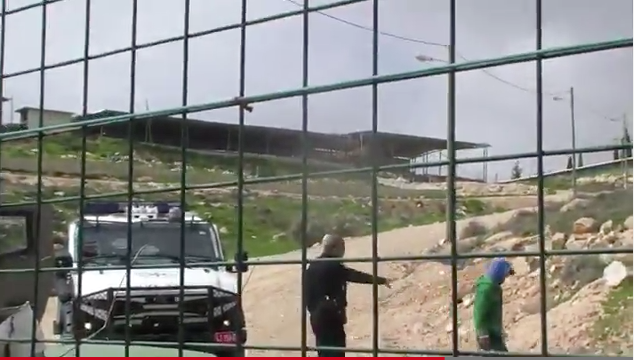Tag: At-Tuwani
-
South Hebron Hills – farming under occupation
27th April 2015 | International Solidarity Movement, Team Al Khalil | South Hebron Hills, Occupied Palestine Located in the tip of the West Bank, the South Hebron Hills are dotted with farming and shepherd communities. We are currently in the wheat harvest season and the children are spending their last few weeks at school before…
-
Israeli forces arrest two shepherds in the South Hebron Hills
5th March 2015 | Operation Dove | South Hebron Hills, Occupied Palestine On the morning of February 28, Israeli police arrested two Palestinian shepherds as they grazed their flock in the valley of Umm Zeitouna near the Israeli settlement of Ma’on. In late morning the security chief of Ma’on settlement and Israeli soldiers arrived in Umm Zeitouna valley…
-
Israeli settlers cut 36 olive trees in the South Hebron Hills
22nd February 2015 | Operation Dove | South Hebron Hills, Occupied Palestine On the morning of February 20, Palestinians in the South Hebron Hills awoke to find that 36 olive trees had been cut or seriously damaged during the night, probably by Israeli settlers. The 25 year-old trees, owned by the Hushiy family from Yatta, were located near the village…



